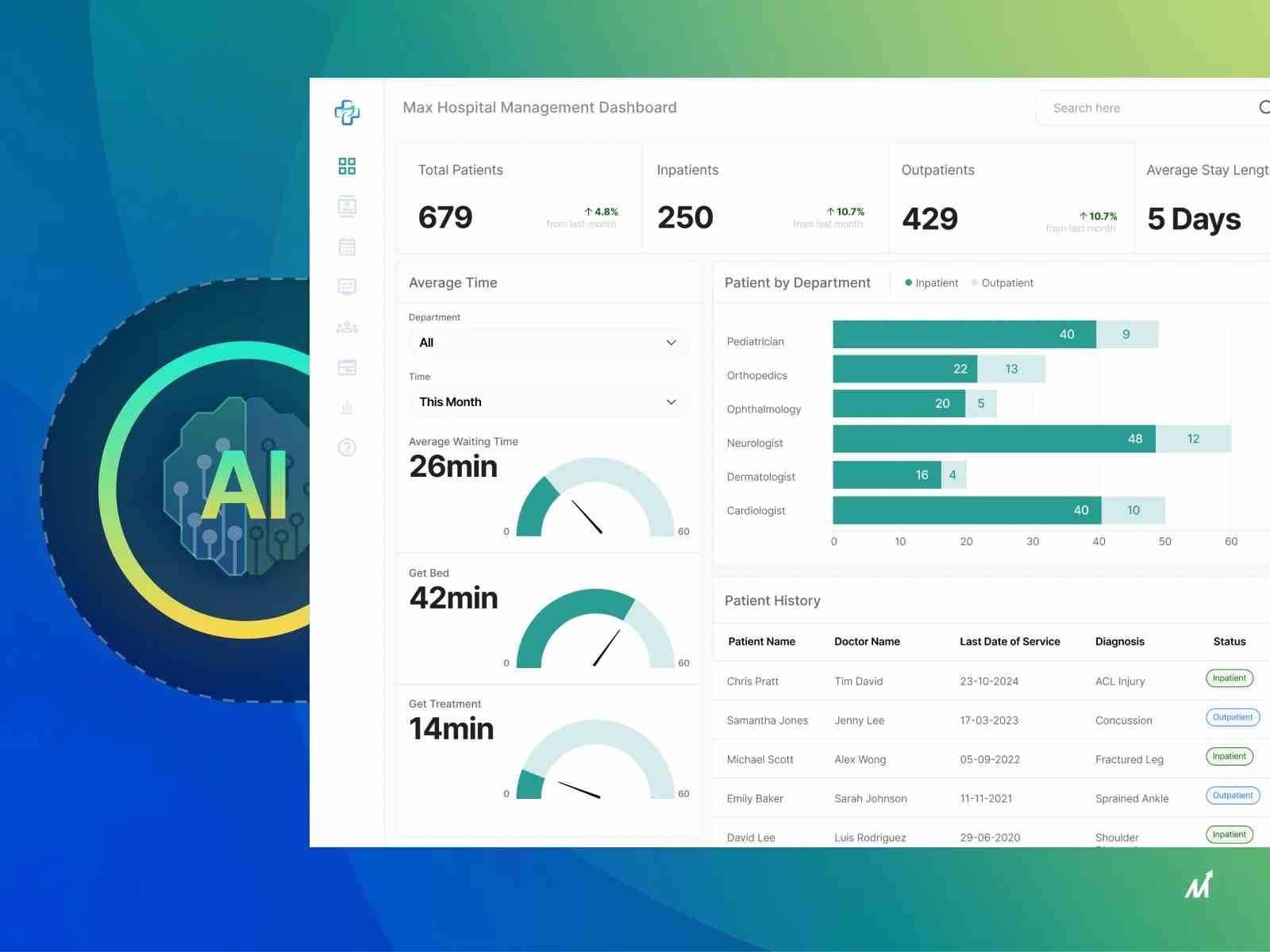Transforming Healthcare with AI: A Deep Dive into Patient Data Analysis

Introduction
Patient data is a treasure trove of insights, capable of revolutionizing healthcare delivery. However, the sheer scale and complexity of data from electronic health records (EHRs), medical imaging, lab results, and wearables make it challenging for healthcare providers to utilize effectively. Enter AI: a groundbreaking tool that leverages machine learning (ML) and advanced analytics to streamline patient data analysis and drive better care outcomes.
This paper explores the importance of AI in patient data analysis, its transformative benefits, key applications, implementation challenges, and how Markovate is empowering healthcare organizations to embrace AI innovations.
The Importance of AI in Patient Data Analysis
AI processes large datasets in real-time, identifying patterns, predicting health outcomes, and generating actionable insights that support clinical decisions. It also personalizes care plans, delivering tailored solutions to meet individual patient needs.
Key Benefits
-
Enhanced Diagnostic Accuracy
AI excels at analyzing medical images such as X-rays, MRIs, and CT scans, detecting abnormalities with precision and uncovering details that might elude human radiologists. -
Improved Treatment Plans
By integrating a patient’s medical history, genetic data, and current health status, AI suggests personalized treatment plans that result in:
-
More targeted therapies
-
Fewer adverse reactions
-
Improved patient outcomes
Early Detection of Conditions
AI predicts future health risks by analyzing lifestyle factors, patient history, and genetic information, enabling early interventions for chronic diseases like diabetes or heart conditions.
Operational Efficiency
-
Automates administrative tasks such as appointment scheduling and claims processing.
-
Optimizes workflows, reducing wait times and improving resource allocation.
Key Use Cases of AI in Patient Data Analysis
-
Medical Imaging
AI algorithms identify patterns in medical imaging, often detecting diseases in their early stages. -
Predictive Analytics
AI forecasts the onset of chronic conditions, allowing early intervention and better patient outcomes. -
NLP for Data Handling
Natural Language Processing (NLP) extracts insights from unstructured data such as doctor notes, ensuring accurate and data-driven decisions. -
Clinical Decision Support
AI-powered systems provide real-time insights, improving diagnostic accuracy and reducing medical errors. -
Remote Monitoring
AI analyzes data from wearables, enabling continuous health monitoring and timely interventions for chronic conditions.
Challenges in Implementing AI in Patient Data Analysis
-
Data Security and Privacy
Ensuring compliance with regulations like HIPAA and GDPR to protect sensitive patient data. -
Data Quality
AI systems are only as effective as the data they process; inaccurate or incomplete data can lead to errors. -
Bias in AI Models
Non-representative datasets can result in biased outcomes, affecting certain patient groups disproportionately.
Solutions:
-
Implement robust data governance frameworks.
-
Regularly update AI models.
-
Ensure transparency in AI decision-making processes.
Markovate: Your Partner in AI Implementation
Markovate specializes in delivering tailored AI solutions for healthcare.
How We Help
-
Customized AI Models
Predictive analytics, early disease detection, and personalized care solutions tailored to unique needs. -
EHR Integration
Seamless AI integration with EHR systems to optimize workflows and support real-time decisions. -
Data Privacy Compliance
Ensure compliance with HIPAA, GDPR, and other regulations to safeguard patient data. -
Ongoing Monitoring & Support
Continuous system updates and performance monitoring to maintain accuracy. -
Staff Training
Comprehensive training programs for healthcare teams to ensure smooth adoption and usage of AI technologies.
The Future of AI in Patient Data Analysis
The integration of AI in healthcare is just beginning. Emerging possibilities include:
-
Widespread Adoption: AI as a standard tool in hospitals and clinics.
-
Enhanced Collaboration: Improved synergy between AI systems and healthcare professionals.
-
Wearable Innovations: AI-powered wearables for real-time health monitoring and issue prediction.
By leveraging AI, healthcare providers can achieve more accurate diagnoses, personalized treatments, and better patient outcomes.
- Industry
- Art
- Causes
- Crafts
- Dance
- Drinks
- Film
- Fitness
- Food
- Παιχνίδια
- Gardening
- Health
- Κεντρική Σελίδα
- Literature
- Music
- Networking
- άλλο
- Party
- Religion
- Shopping
- Sports
- Theater
- Wellness
- News


